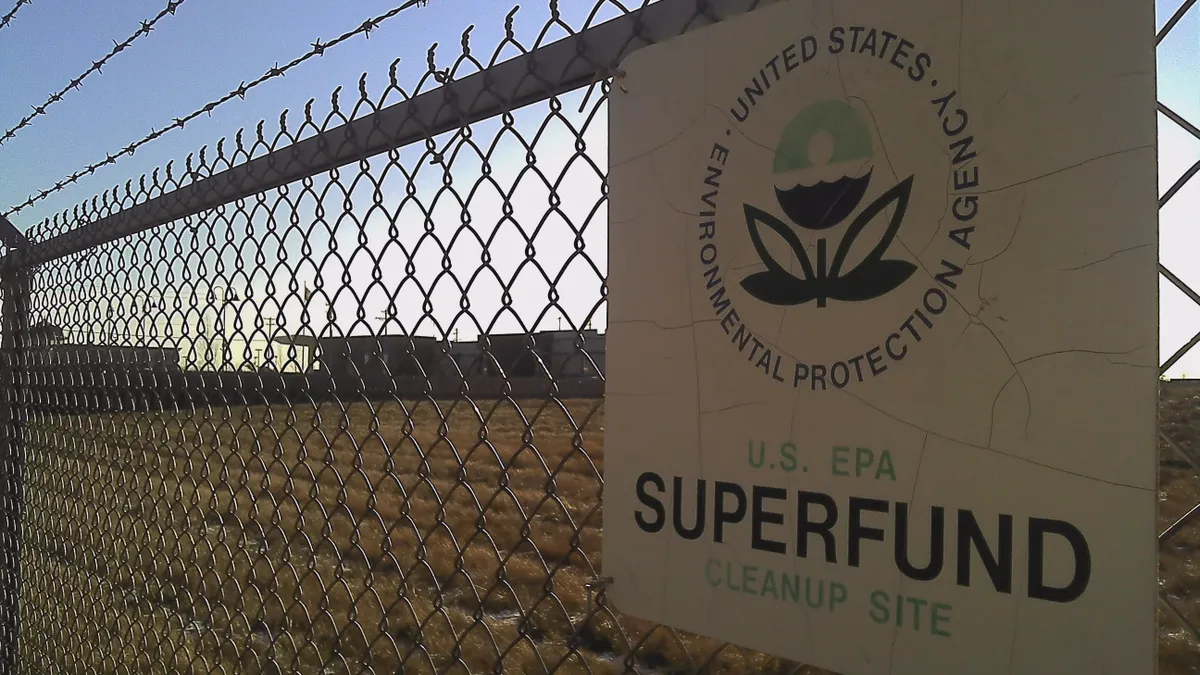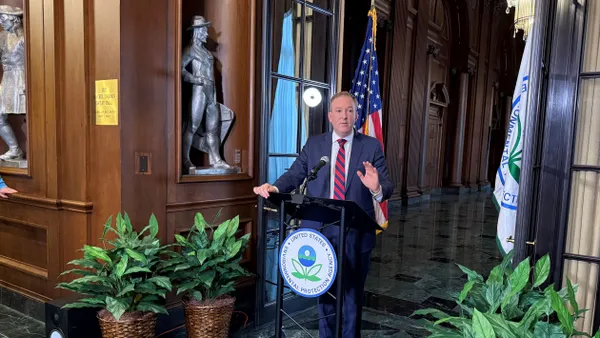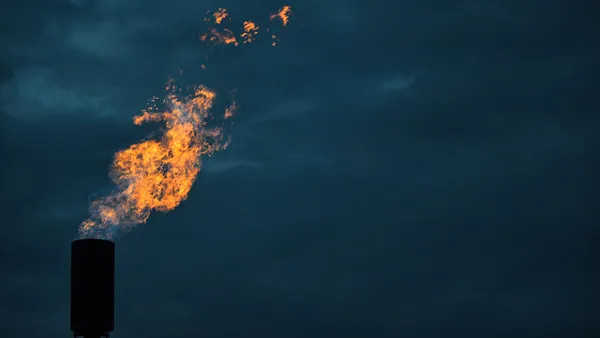Dive Brief:
- Waste Management is seeking approval from the Wisconsin Department of Natural Resources (DNR) for a proposed expansion of the Orchard Ridge Landfill, as reported by the Milwaukee Journal Sentinel.
- The project, which would follow a previous expansion approved by the state in February, calls for a somewhat unorthodox approach: the company would excavate 1.3 million cubic yards of waste from an unlined Superfund site on the property and move it to the newly-constructed expansion.
- While Waste Management has emphasized the environmental benefits of eliminating a Superfund site, a local group is raising doubts. "What we are concerned about is protecting the environment, protecting the health of people and ensuring there is full public participation," Charlene Lemoine, an activist with the Waukesha County Environmental Action League, told the Journal Sentinel.
Dive Insight:
Opened in 1994, the 388-acre Orchard Ridge Landfill (part of a larger 725-acre property) was slated for retirement within the next year — but Waste Management's proposed expansions may breathe new life into Wisconsin's largest disposal site.
The proposed 17.3 million-cubic yard expansion (which includes the Superfund area) would add an estimated 10.9 years to the landfill's lifespan, Waste Management public affairs manager Lynn Morgan told Waste Dive in an email. That, plus the 5.4 million-cubic yard expansion approved by state regulators this past spring, could contribute approximately 16-17 years of new capacity.
Morgan did not confirm prior to publication whether Waste Management has performed similar landfill expansion-related Superfund excavations in other states. However, DNR communications director Sarah Hoye noted that two comparable projects in Wisconsin — including the Advanced Disposal-owned Glacier Ridge Landfill — have yielded favorable results.
"In both cases waste was moved from an unlined location to a lined location with a leachate collection system," she told Waste Dive via email. "The effect was that the source of contamination was removed, and thus significantly reduced the potential for the waste to continue contaminating the groundwater."
According to Hoye, both waste excavations — which took place primarily in the winter months to control odors and minimize effects on local residents — occurred "without incident and with little nuisance to the public."
The state expects to issue a preliminary opinion on Waste Management's Initial Site Report by the end of July, according to Hoye and DNR hydrogeologist Joseph J. Lourigan. The company will then submit a feasibility report providing information on site-specific geology, potential environmental effects and the proposed landfill's conceptual design — at which time DNR will invite the public to submit comments.
"If Waste Management of Wisconsin, Inc. is ultimately able to move forward with its proposed project, there may be environmental benefits by placing the old waste into a lined landfill with engineered controls and it may provide the company with additional landfill capacity, allowing them to operate the facility for longer," Lourigan told Waste Dive via email. "However, it still needs to be determined if excavating the waste and moving it is feasible and if the proposed landfill expansion is feasible."














